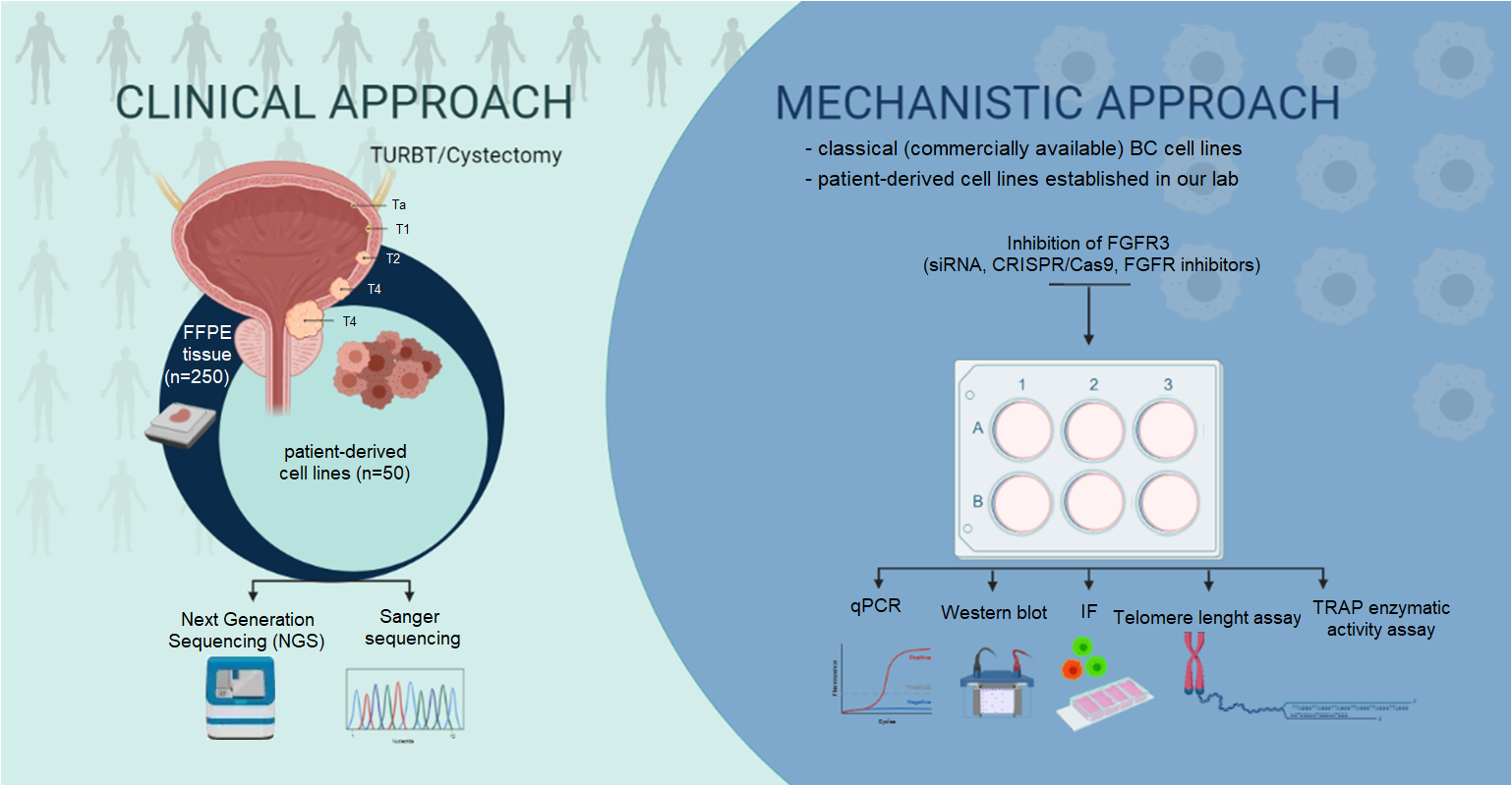Abstract: Functional Relationships Between FGFR3 and TERT in Urothelial Carcinomas
The fibroblast growth factor receptor (FGFR) signaling pathway plays an essential role in the development of bladder cancer. Overactivation of this signaling cascade can, among other causes, be triggered by activating mutations in the fibroblast growth factor receptor 3 (FGFR3) gene, which are among the most frequent mutations found in bladder tumors. For this reason, the pan-FGFR inhibitor erdafitinib has been used in clinical practice for several years, and additional substances with inhibitory effects on the FGFR signaling pathway are currently being tested in clinical trials.
Another genetic locus frequently mutated in bladder cancer is the promoter region of TERT. TERT encodes the catalytic subunit of telomerase and represents a critical factor for the enzyme’s activity. Activating mutations in the TERT promoter region lead to increased transcription and may therefore contribute to telomerase reactivation, an essential step in carcinogenesis.
Previous studies have shown that activating mutations in FGFR3 and TERT in bladder cancer co-occur more frequently than would be expected by chance. It is also suspected that they may influence disease progression. Furthermore, it has been demonstrated that FGFR3 activity can affect TERT expression in certain cell types, and that this effect is modulated by specific mutations and a SNP in the TERT promoter.
Against this background, the aim of this project is to investigate potential interactions between FGFR3 and TERT, pursuing both mechanistic and clinical approaches. Using established bladder cancer cell lines as well as cell cultures derived from patient material obtained in our laboratory in recent years, we plan to conduct various in vitro experiments. Among other approaches, we will inactivate FGFR3 by knockdown or knockout and evaluate the effects on TERT expression and telomerase activity. We will also investigate the impact of various FGFR inhibitors (e.g., erdafitinib) on TERT.
In addition, we will isolate DNA from archived FFPE tissue samples from bladder cancer patients to perform next-generation sequencing (NGS). Correlating these results with clinical data will show whether different combinations of mutations in FGFR3 and the TERT promoter could serve as predictive and/or prognostic markers for bladder cancer.
Sponsoring
This project is funded by the Anniversary Fund of the Austrian National Bank (OeNB).
Link

